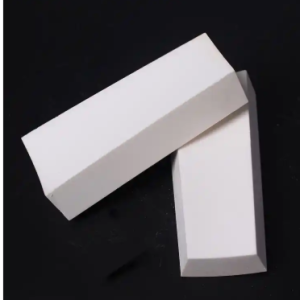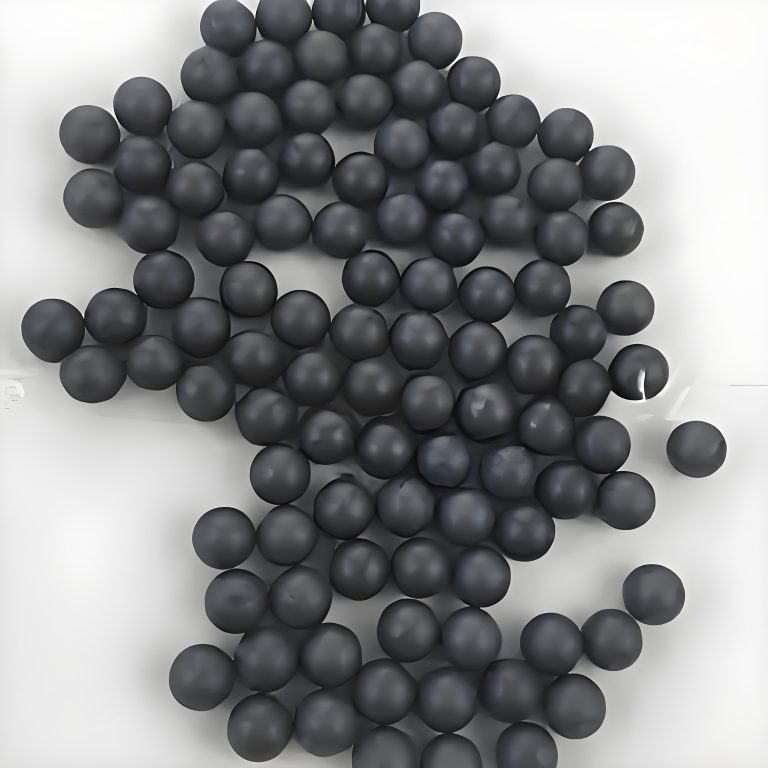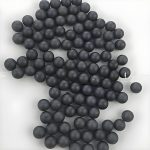Professional and high-quality metal alloys, ceramic products and concrete additives | RBOSCHCO
PRODUCT PARAMETERS
Description
Introduction of Boron Carbide Grinding Balls
Boron Carbide Grinding Balls are high-performance grinding media made of boron carbide (B₄C) material. Boron carbide is an ultra-hard ceramic material with extremely high hardness, wear resistance, and chemical stability, which is widely used in high-precision grinding and polishing processes. Boron Carbide Grinding Balls are usually made by hot press sintering or cold press sintering process, have dense structure and excellent mechanical properties, and are suitable for handling high-hardness materials.
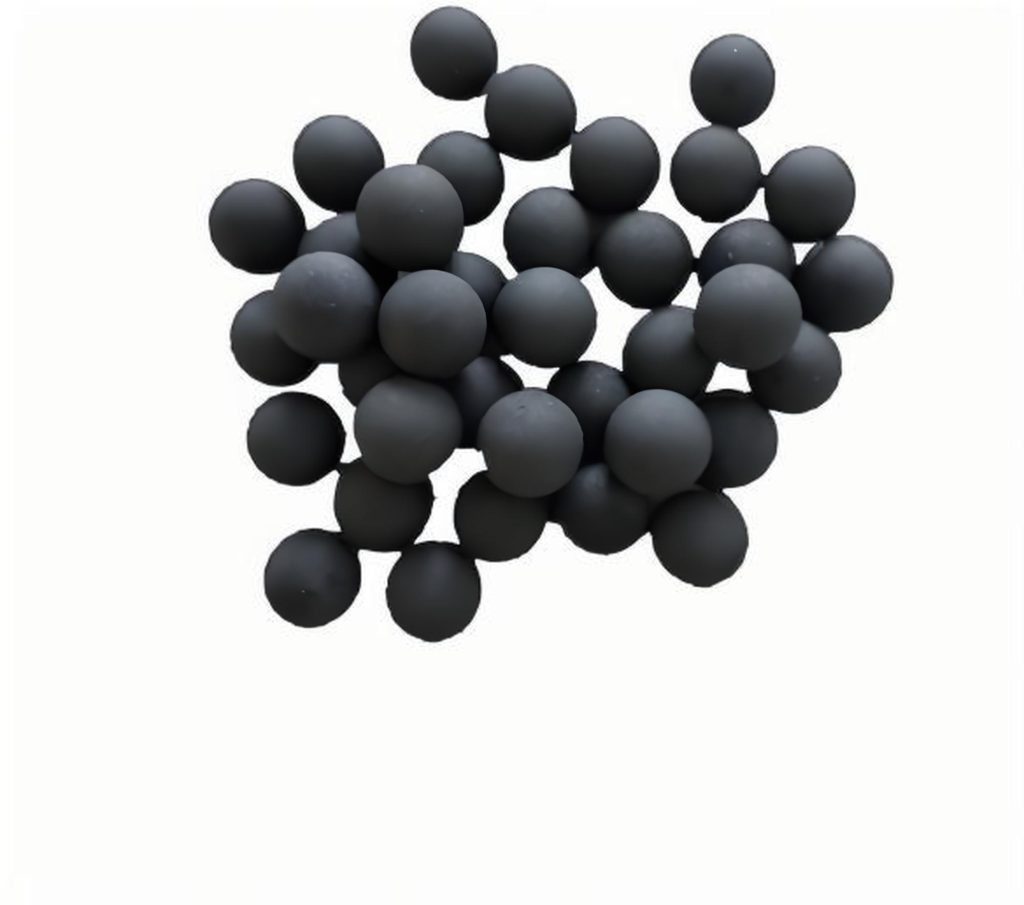
Features of Boron Carbide Grinding Balls
High hardness: The Mohs hardness of boron carbide is as high as 9.3, which is second only to diamond and cubic boron nitride, and it can efficiently grind high hardness materials.
Excellent wear resistance: Boron carbide grinding balls have extremely high wear resistance and long service life, suitable for long time grinding operation.
Low density: with a density of about 2.52 g/cm³, it is lighter than most metal grinding media, which reduces equipment wear and energy consumption.
High temperature resistance: melting point as high as 2450°C, it can still maintain stable performance in high temperature environment.
Corrosion resistance: excellent resistance to acids, alkalis and most chemical reagents, suitable for grinding operations in corrosive environments.
High purity: Boron carbide grinding balls have low impurity content, suitable for grinding and polishing of high purity materials.
Low contamination: It is not easy to produce contamination in the grinding process, ensuring the purity of the material being ground.
Parameters of Boron Carbide Grinding Balls
| Property | Specification |
| Chemical Formula | B₄C |
| Hardness (Vickers) | ~35 GPa |
| Density | 2.52 g/cm³ |
| Melting Point | 2450°C (4442°F) |
| Thermal Conductivity | 27-129 W/m·K (depending on purity and orientation) |
| Thermal Expansion Coefficient | 6.5 × 10⁻⁶ K⁻¹ |
| Electrical Resistivity | High (acts as an electrical insulator) |
| Compressive Strength | > 3.5 GPa |
| Tensile Strength | Relatively low due to brittleness |
| Modulus of Elasticity | 460-500 GPa |
| Fracture Toughness | Low (~3 MPa·m^(1/2)) |
| Chemical Stability | Highly resistant to most acids, alkalis, and molten salts |
| Neutron Absorption Cross Section | High (~760 barns for natural boron) |
| Corrosion Resistance | Excellent in most environments |
| Acoustic Properties | Good sound damping characteristics |
| Biocompatibility | Generally considered biocompatible |
| Environmental Impact | Non-toxic; long service life reduces replacement frequency |
| Manufacturing Process | Hot isostatic pressing (HIP), sintering, reaction bonding, machining, polishing |
| Typical Dimensions | Diameter: varies by application (common sizes include 1 mm, 2 mm, 3 mm, etc.) |
| Surface Finish | Can be polished to high precision (Ra < 0.1 μm) |
| Sphericity | High precision, typically within ±0.002 mm |
| Roundness | High roundness, typically within ±0.002 mm |
| Weight Tolerance | Typically within ±0.5% |
Applications of Boron Carbide Grinding Balls
Grinding of high hardness materials: used for grinding tungsten carbide, silicon carbide, ceramics and other high hardness materials.
Semiconductor industry: used for polishing and precision grinding of semiconductor wafers to ensure surface finish and precision.
Chemical industry: used for grinding corrosion-resistant materials and chemical reagents, suitable for corrosive environments.
Powder metallurgy: used to fine grind metal and ceramic powder to improve the uniformity and activity of the powder.
Electronic materials: for grinding and polishing of electronic ceramics, magnetic materials, and other high-precision materials.
Scientific research: for grinding and sample preparation of high-purity materials in the laboratory.
Aerospace: for grinding high-strength alloys and composite materials to meet the high-precision needs of the aerospace field.
Company Profile
RBOSCHCO is a trusted global chemical material supplier & manufacturer with over 12 years experience in providing super high-quality chemicals and Nanomaterials.
The company has a professional technical department and Quality Supervision Department, a well-equipped laboratory, and equipped with advanced testing equipment and after-sales customer service center.
If you are looking for high-quality Boron Carbide Grinding Balls please feel free to contact us or click on the needed products to send an inquiry.

Payment Term
T/T, Western Union, Paypal, Credit Card etc.
Packing and Storage
The product is in powder form and should be stored in a cool, ventilated place. Avoid inhalation when using it and keep away from open flames, heat sources, etc.
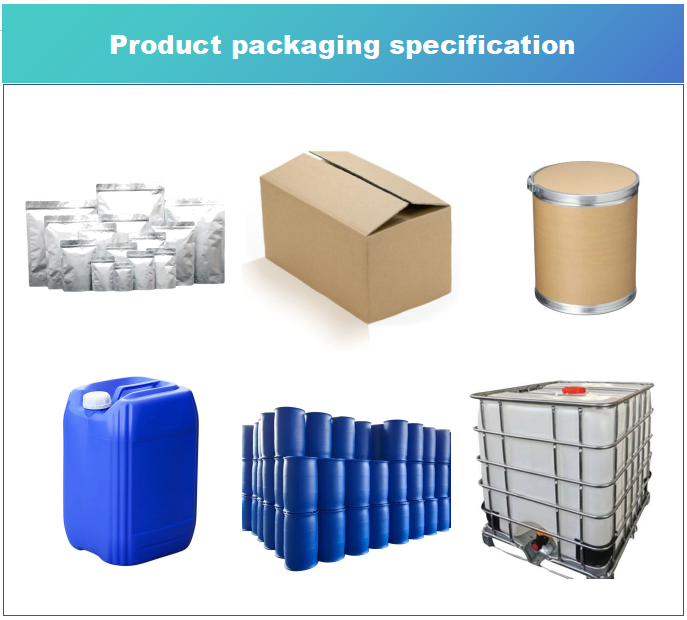
Shipment Term
By air, by sea, by express, as customers request.
FAQs of Boron Carbide Grinding Balls
Question 1: How hard are boron carbide grinding balls?
Answer: Boron Carbide Grinding Balls are extremely hard, with a Mohs hardness of 9.3, second only to diamond and cubic boron nitride.
Question 2: What is the application of Boron Carbide Grinding Balls in the semiconductor industry?
Answer: In the semiconductor industry, Boron Carbide Grinding Balls are used for polishing and precision grinding of wafers to ensure surface finish and accuracy while avoiding contamination and meeting the processing needs of high purity materials.
Question 3: What is the manufacturing process of Boron Carbide Grinding Balls?
Answer: Boron carbide grinding balls are usually manufactured by hot press sintering or cold press sintering process. Hot press sintering is performed at high temperatures and pressures to obtain high density and strength grinding balls, while cold press sintering is performed through low temperature molding and subsequent sintering treatments.
Question 4: What materials are Boron Carbide Grinding Balls suitable for?
Answer: Boron carbide grinding balls are suitable for grinding high hardness materials, such as tungsten carbide, silicon carbide, ceramics, metal powder, electronic ceramics and magnetic materials, etc. They are widely used in semiconductor, chemical and powder metallurgy fields.
Question 5: What is the corrosion resistance of Boron Carbide Grinding Balls?
Answer: Boron Carbide Grinding Balls have excellent corrosion resistance, able to resist the erosion of most acids, alkalis and chemical reagents, suitable for grinding operations in corrosive environments.
REQUEST A QUOTE
RELATED PRODUCTS
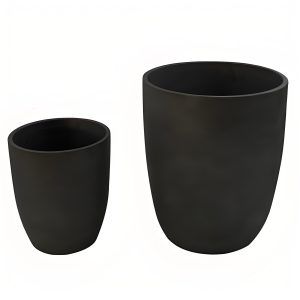
Wear-resistant and High-temperature Resistant Silicon Carbide Sintering Crucible
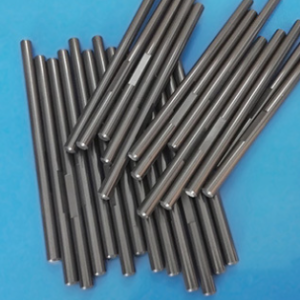
Precision Machining of High-purity Silicon Nitride Rods
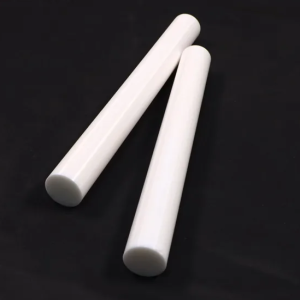
Refractory Industrial Insulating Ceramic Zirconia Rods
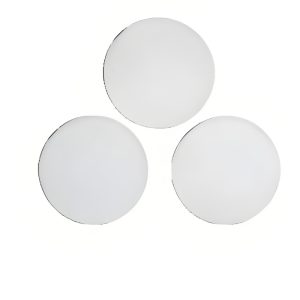
Inch ALN Aluminum Nitride Ceramic Wafer Disc Good thermal shock resistance High thermal conductivity

BN ceramic nozzle high purity ceramics boron nitride insulator nozzle
